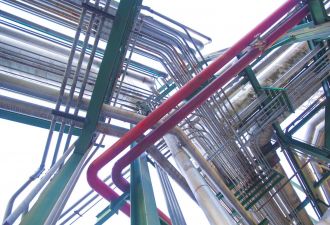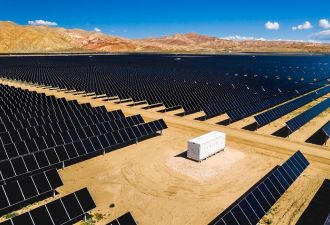China surpassed the United States as the world's largest polluter two years ago. Protests over coal mining erupt regularly across the country. And walking around Beijing or Shenzhen can be as bad for your lungs as lighting an unfiltered Camel with a flaming stick.
But, strangely enough, green technologies are emerging as China's first homegrown brands and many will set up shop in the U.S. In case you missed it:
• Last month, a joint venture between Shenyang Power Group, U.S. Renewable Energy Group and Cielo Wind Power announced plans to build a $1.5 billion, 600-megawatt wind farm in Texas. China's A-Power Generation will provide the wind turbines and a Chinese bank will provide financing. After Senator Charles Schumer (D-N.Y.) complained that the project would lead to 2,800 jobs in China and 240 in the U.S., A-Power announced it would build a factory in the U.S. that would employ 1,000.
• Duke Energy Generation Services announced it had teamed up with ENN, a sprawling Chinese conglomerate that employs 24,0000 people, to build and operate solar power plants in the U.S.
• Suntech Power Holdings wants to build a factory in Arizona to assemble solar modules. A number of Chinese solar companies, including Suntech, have opened its U.S. headquarters in San Francisco in the last two years. In Oregon, Grape Solar, which imports from China, has been scooping up contracts.
• Coda Automotive, which plans to sell all-electric cars largely designed and manufactured in China next year in the U.S., raised $24 million in July from investors like former Treasury Secretary Henry "Give Me Liberty or Give me $787 Billion" Paulson and Thomas "Mack" McLarty, the former chief of staff for Bill Clinton.
So what does that mean for you? A new wave of employers. Just as once-unfamiliar Japanese conglomerates like Sony, Hitachi, Honda and Toyota began to open offices up in the U.S. in the late 1960s and early '70s, and South Korean conglomerates started recruiting U.S. execs to fill their gleaming suites in the '80s, Chinese companies will likely do the same. I've traveled to China a few times and interviewed a number of executives at Chinese companies. I'm by no means an expert on Sino-U.S. relations, but I've picked up a few pointers on the office culture and work habits. Some things to remember:
• The importance of college cannot be overemphasized. The two-day National College Entrance Exam, or gaokao, is one of the biggest moments in life for Chinese kids. Ten million people take the test and around 60 percent pass, but only a few thousand get into the elite schools like Peking University, a gateway to connections and the good life. The country comes to a standstill. "It is a very, very narrow door," explained one executive who was showing me around Tsinghua, China's MIT. "And you have only one chance."
You might want to keep that story about getting arrested for stealing sorority composites at Arizona State to yourself.
• No matter what, your co-workers will always have better hard-luck stories. I once asked Linux entrepreneur Liu Bo where he got the drive to succeed. Working 20 hours a day at age 15 on a collective farm during the Cultural Revolution, he replied.
"The two years of hardship taught me to face difficulties," he said. "What could be worse?"
• Unity is an illusion. The Beijing Olympics gave the impression of a nation harmonized toward a single goal. If you want conformity, lifetime employment, loyalty and unity, look toward Japan and Korea. Chinese companies in a lot of ways operate like Silicon Valley ones: Speaking out, standing out and spinning off to form your own venture are not frowned upon.
• Optimism reigns. For the first time in centuries, China can look forward to experiencing a better tomorrow. There's an infectious sense of can do-ism at many companies. Kevin Li, a CEO at a video site, positively beamed with energy when he explained how a "pay per post" system and product placements helped rocket his company. "Either die or make money," he enthused. I wasn't alive in the 1930s and '40s, but you see the same attitude in Americans who lived back then.
• Buy a blue suit. Conference casual doesn't go over as well as in U.S. companies. The elderly gentleman wearing a corsage? Your company is probably one division in his sprawling empire.
• Politics can be tricky. A lot of Americans assume that only the Chinese government is upset about Taiwan, Tibet and the Uighur region. The average, educated citizen, like us, surely stands for regional autonomy. Not the case. Think about political attitudes in the U.S. during the expansionist era of the 1800s. Ulysses S. Grant thought the Mexican war was embarrassing, but many thought adding Texas to the U.S. was a grand idea. (Think how history might have been different if we thought that one through.)
• Don't get crazy with salary requests. Chinese companies will pay Europeans and U.S. execs more than they do Chinese counterparts, but wacky compensation isn't part of the plan, particularly before an IPO. Before it went public in 2005, Trina Solar paid a group of four executives $128,000. And no one had a severance deal.
Last of all, you'll get to hear some great coming-of-age stories.



